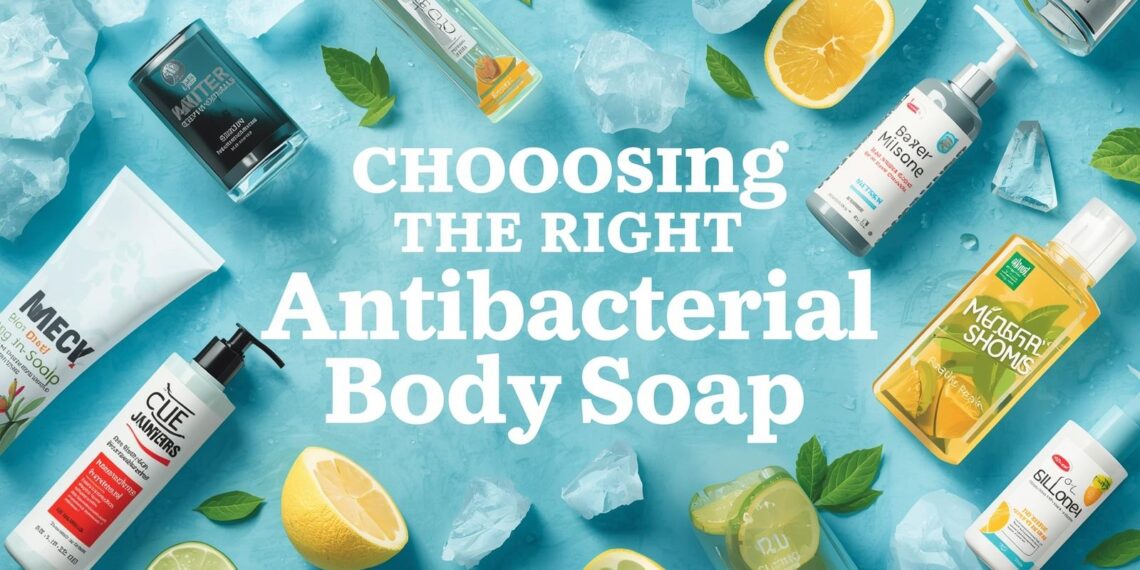In recent years, the wellness industry has witnessed a significant surge in the popularity of antibacterial body soaps. Driven by increasing consumer awareness about personal hygiene and health, these products have become staple items in many households. However, with a plethora of options available in the market, choosing the right antibacterial body soap can be a daunting task. This article aims to guide you through the process of selecting the most suitable product, keeping in mind factors such as skin type, ingredients, and overall effectiveness.
Antibacterial body soap is specifically formulated to combat bacteria and other microorganisms on the skin. These soaps typically contain active ingredients like triclosan or triclocarban, which are known for their antimicrobial properties. The primary goal of these products is to reduce or eliminate the presence of bacteria, thereby preventing infections and promoting better skin health.
The increasing demand for antibacterial body soap is closely linked to heightened public awareness about hygiene and health. As individuals become more conscious of the need to protect themselves from germs and bacteria, they are opting for products that promise enhanced protection. Moreover, the ongoing global health challenges have further amplified the importance of maintaining personal hygiene, contributing to the growing popularity of antibacterial soaps.
One of the most critical factors to consider when selecting an antibacterial body soap is your skin type. Individuals with sensitive skin should opt for products that are gentle and free from harsh chemicals. Look for soaps that are labeled as hypoallergenic or specifically designed for sensitive skin. These products are formulated to minimize the risk of irritation and provide a soothing cleansing experience.
The ingredients used in antibacterial body soaps play a vital role in determining their effectiveness and suitability. It is essential to examine the ingredient list to ensure that the soap does not contain any components that may cause allergic reactions or skin irritation. Natural ingredients such as tea tree oil, aloe vera, and eucalyptus are often preferred for their antimicrobial properties and skin-soothing benefits.
When choosing an antibacterial body soap, it is crucial to assess its effectiveness in combating bacteria. Look for products that have been clinically tested and proven to eliminate a significant percentage of bacteria on the skin. Some soaps may also offer additional benefits, such as moisturizing properties or the ability to remove dirt and impurities effectively.
In today’s environmentally conscious world, many consumers are concerned about the ecological footprint of the products they use. Opt for antibacterial body soaps that are biodegradable and packaged in eco-friendly materials. This not only ensures that you are taking care of your skin but also contributing to the preservation of the environment.
Dial is a well-known brand that offers a range of antibacterial body soaps. Their products are designed to provide a deep clean while eliminating bacteria effectively. The Dial Antibacterial Bar Soap is formulated with active ingredients that offer long-lasting protection, making it a popular choice among consumers.

Dettol is another trusted name in the realm of antibacterial products. Their Antibacterial Body Wash is specifically crafted to provide a refreshing cleanse while combating germs and bacteria. This product is particularly suitable for individuals who prefer a liquid soap formulation.
Hibiclens is a medical-grade antimicrobial soap that is widely used in healthcare settings. It is known for its ability to eliminate a broad spectrum of bacteria and is often recommended for individuals with specific skin concerns. While it may be more potent than regular antibacterial soaps, it is essential to use it as directed to prevent skin irritation.
The widespread use of antibacterial body soaps highlights a shift in consumer behavior towards prioritizing hygiene and health. This trend reflects a broader societal movement towards wellness, where individuals are increasingly mindful of the products they use and their impact on overall well-being. As a wellness product developer, understanding these shifts is crucial for creating products that align with consumer preferences.
For lifestyle magazine editors and health coaches, the rise of antibacterial soaps presents an opportunity to explore the intersections of wellness, identity, and social practices. By delving into the cultural and economic dynamics of this trend, you can offer valuable insights to your audience and clients, helping them navigate the evolving landscape of wellness.
Choosing the right antibacterial body soap involves considering various factors, including skin type, ingredients, effectiveness, and environmental impact. As the wellness industry continues to evolve, staying informed about consumer trends and preferences is essential for making informed decisions. Whether you are a product developer, editor, or coach, understanding the broader implications of antibacterial soap use can help you stay ahead in the dynamic world of wellness. By aligning your strategies with contemporary lifestyle trends, you can effectively meet the needs of consumers and contribute to their overall well-being.




